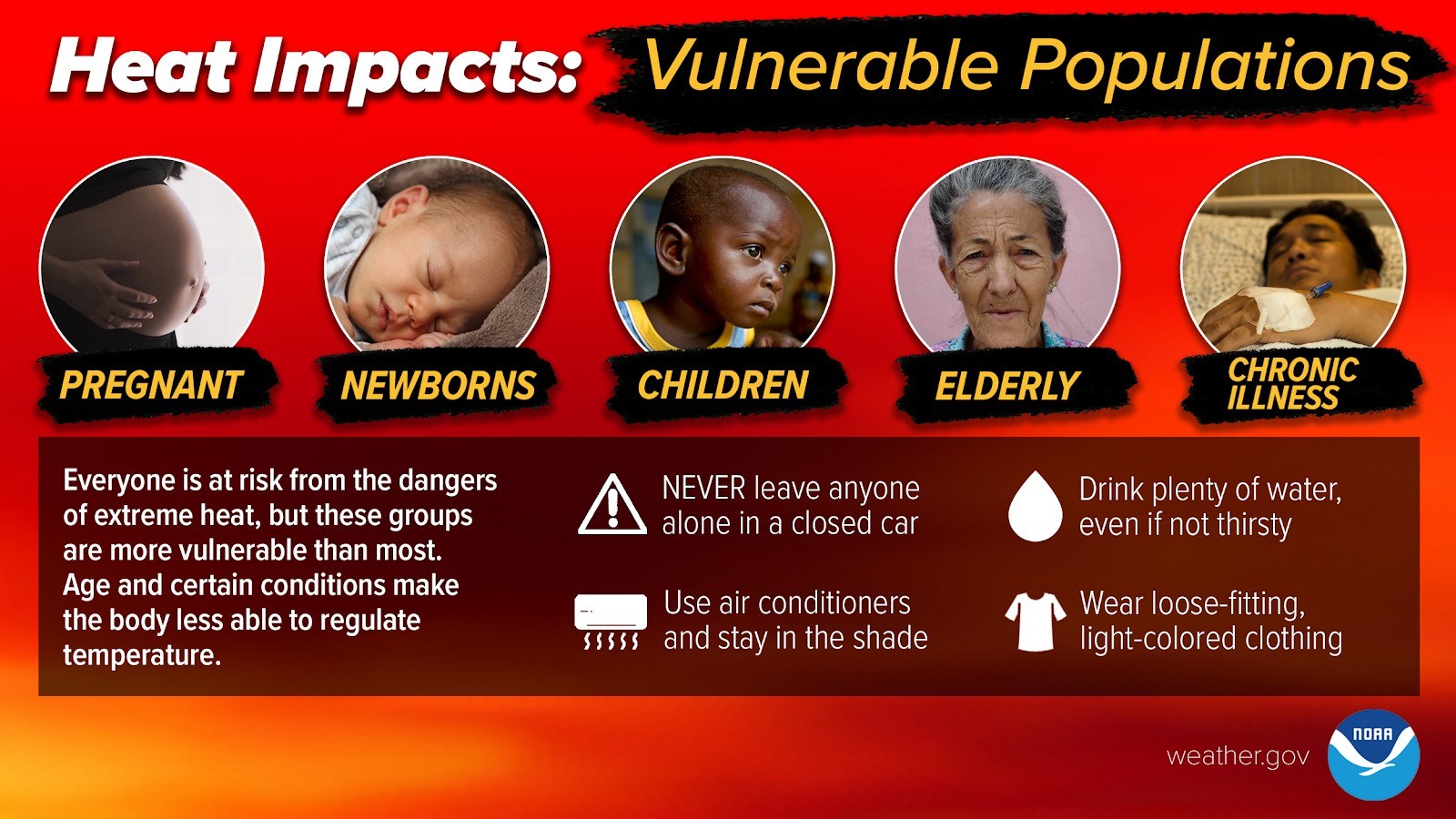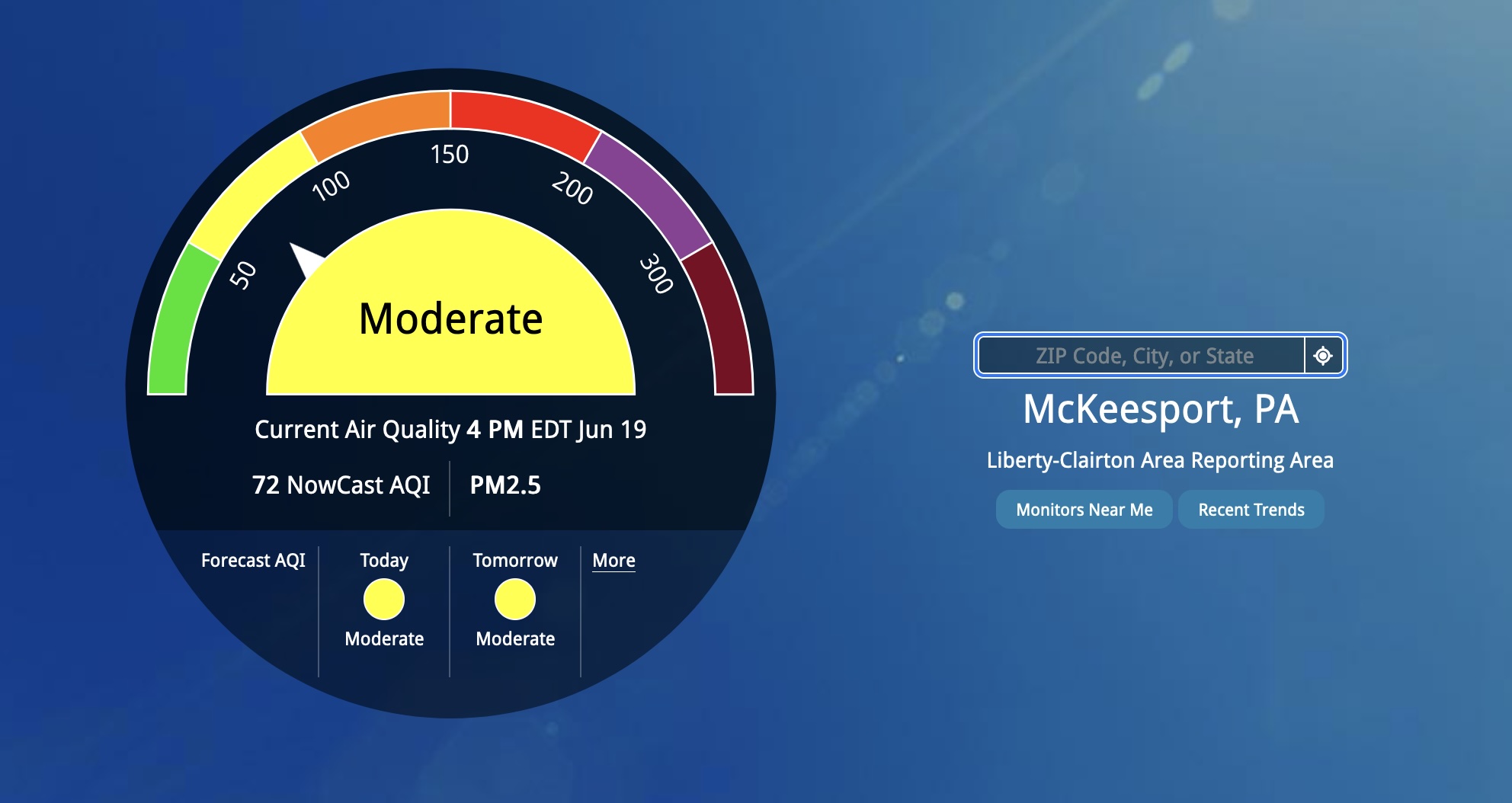(Advertisement)
Tube City Community Media Inc. is seeking freelance writers to help cover city council, news and feature stories in McKeesport, Duquesne, White Oak and the neighboring communities. High school and college students seeking work experience are encouraged to apply; we are willing to work with students who need credit toward class assignments. Please send cover letter, resume, two writing samples and the name of a reference (an employer, supervisor, teacher, etc. -- not a relative) to tubecitytiger@gmail.com.
Ads start at $1 per day, minimum seven days.
Local Doctor: Heat Wave Poses Unique Risks
Water is best when it comes to hydration, doc says; humans struggle when air temps near body temps
By Jason Togyer
The Tube City Almanac
June 19, 2024
Posted in: McKeesport and Region News

(Source: National Weather Service)
Related: Record-breaking heat bakes Mon-Yough area; cooling centers opened
Temperatures above 90 degrees pose unique health risks because they’re so close to our core body temperatures of 98 to 99 degrees, a local doctor said.
“Heat transfer from your body surface to the environment becomes less efficient the closer the ambient temperature is to core body temperature,” said Dr. Thomas Kessler, a family medicine specialist in Trafford and Irwin who also practices at UPMC East in Monroeville.
“Humidity is also is an important factor,” Kessler said. “Sweat helps us regulate body temperature via evaporation. If humidity is too high, producing sweat becomes more difficult. As an analogy, you can't be cooled off by sweat if you're submerged in a swimming pool, because your sweat won't evaporate. The combination of high heat and humidity can be very dangerous.”
The mid-Atlantic is currently trapped under a so-called “heat dome” that’s roughly centered over Ohio and Pennsylvania, but which extends from Michigan to New York.
Temperatures are expected to be in the upper 90s in the Mon-Yough area on Friday, but the humidity will make it feel like it’s closer to 101 to 102 degrees, according to National Weather Service forecasters.
The human body can only tolerate a relatively narrow range of temperatures in order for our cells to function normally, said Kessler, a graduate of DeBusk College of Osteopathic Medicine at Lincoln Memorial University who is certified by the American Board of Family Medicine and the American Osteopathic Association.
“Heat-related illnesses effect all organ systems at both the cellular and body level,” Kessler said. “Chronic health conditions including diabetes, heart disease and kidney disease are adversely affected by high temperature changes. This is primarily due to significant changes in electrolyte composition from dehydration during heat waves.”
Elevated temperatures and high humidity also can cause poor air quality, which can exacerbate chronic lung conditions such as asthma and chronic obstructive pulmonary disease, he said.

(Source: AirNow.gov)
The Allegheny County Health Department said that air-quality monitors in Liberty Borough and North Braddock are showing moderate levels of pollution so far this week. According to the U.S. Environmental Protection Agency’s AirNow.gov website, air pollution — including ozone levels — are expected to remain moderate through Saturday.
Children and older adults are especially at risk of heat-related illnesses, Kessler said. For one reason, neither group sweats as efficiently as other demographics. In addition, he said, children have metabolisms that produce more heat — per pound — than adults.
“Elderly patients typically have more comorbidities such as heart and kidney disease resulting in increased frailty, and rendering them more prone to dehydration and metabolic changes with temperature elevation,” Kessler said.
“Additionally, cognitive decline in this population may result in an inability to recognize the signs and symptoms of heat related illness in a timely fashion,” he said.
Some medications for chronic conditions can make patients more susceptible to heat-related illnesses, Kessler said. Those include commonly prescribed blood pressure medications, such as diuretics and beta-blockers, as well as frequently used over-the-counter allergy medications that contain antihistamines.
Warning signs of heat-related illnesses include fatigue, weakness, dizziness, nausea or excessive sweating, Kessler said. Confusion or tiredness can also be early warning signs of heat stroke. Anhidrosis — the inability to produce sweat — is a sign of severe dehydration and “must be addressed immediately,” he said.
“The major objective metric for evaluation of heat stroke is a core temperature above 105 (degrees Fahrenheit),” he said. “This is a potentially fatal process and requires rapid treatment with active cooling.”
Besides staying out of the sun, avoiding physical exertion and finding chances to stay in air-conditioned surroundings, health experts said that hydration is key — but Kessler notes that some beverages are better than others.
Although a cold beer or a tall glass of iced tea may seem refreshing, caffeine and alcohol cause people to urinate more, he said.
Such drinks “increase the amount of both fluid and electrolytes lost in the urine,” Kessler said. “The key to hydration is staying well hydrated in the first place, as opposed to waiting until you are dehydrated to replenish your electrolytes. Water is best.”
Electrolyte fluids — including Pedialyte — can help replenish lost nutrients, he said, but patients should be careful, because some beverages marketed as “sports drinks” have a high sugar content.
Originally published June 19, 2024.
In other news:
"Record-Breaking Heat …" || "Scientist: Heat Waves…"
 TM
TM